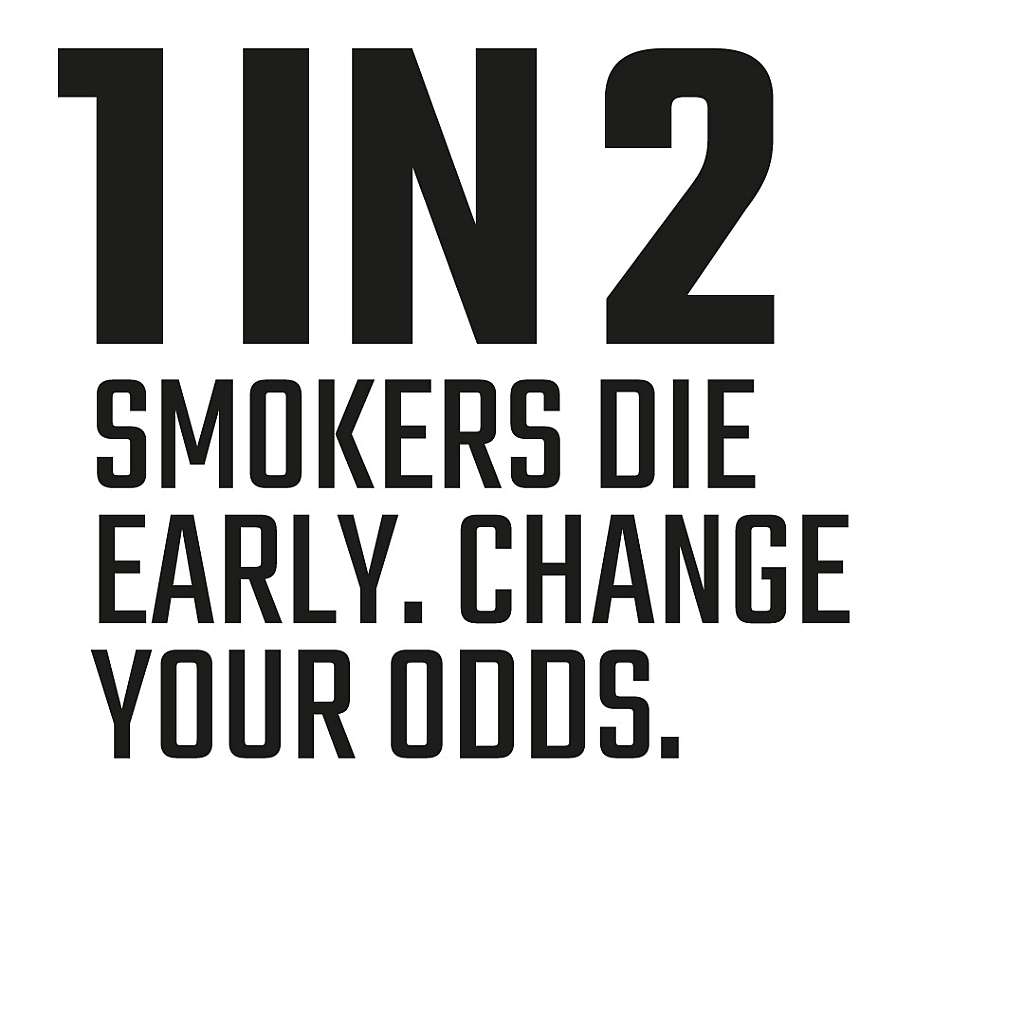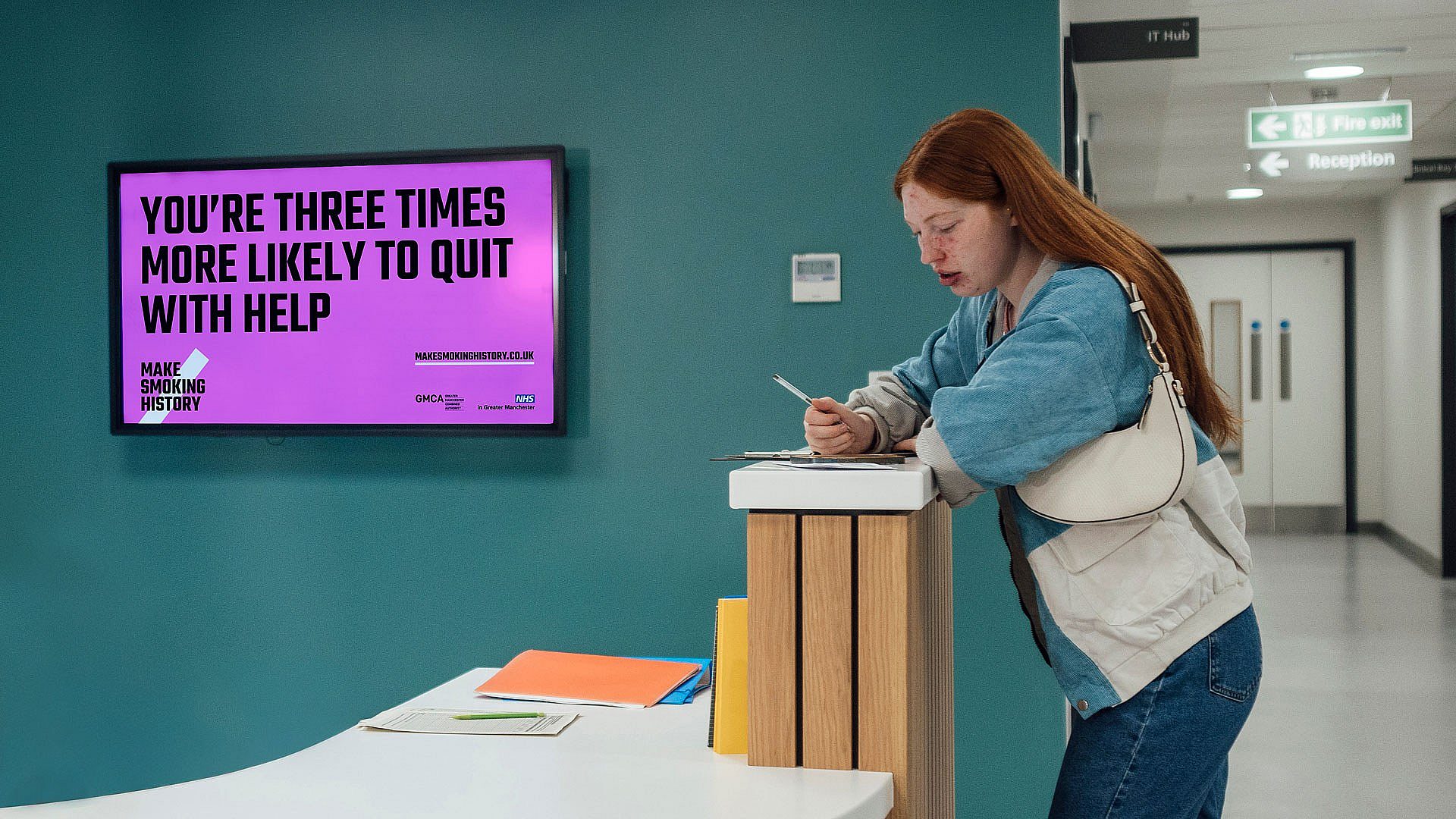Reimagining a Smokefree Future
Smoking rates in the UK may have dropped, but in Greater Manchester, they remained stubbornly above national averages. Greater Manchester Combined Authorities needed a fresh approach to encourage smoking cessation, as their existing "You Can" campaign had hit a wall. Traditional tactics - either scaring smokers with health risks or promising the rosy post-quitting future - weren't cutting it.
Uncovering the truth
Our research revealed a truth often overlooked: quitting smoking is not a simple yes-or-no journey. Smokers have a deeply personal, complex relationship with their habit, and many have tried to quit numerous times, often without success. Studies suggested it takes around 30 attempts to quit for good. The existing campaign, focusing on the binary "you smoke, or you don't," missed this crucial nuance, failing to resonate with those still struggling.
Redefining the journey
It was clear we needed a new angle. Instead of framing past attempts as failures, we redefined them as essential steps on the path to becoming a successful quitter. The brand needed to celebrate the effort, determination, and resilience it takes to keep trying—transforming quitting from a daunting challenge into a journey where progress, not perfection, is the goal.
Creating the coach brand
We rebranded the initiative as "Make Smoking History," positioning it more like a supportive coach than a distant public service. The new brand is honest, direct, and unafraid to deliver tough love, offering personalised support that meets people where they are.
Calling for ongoing behaviour change
The "Never Quit Quitting" launch campaign flipped the script. Instead of only celebrating those who had quit, it praised the determination of all quitters, regardless of where they were on their journey. It emphasised that with the right support, every attempt brings you closer to success. By shifting the focus to the process, "Make Smoking History" turned quitting into an ongoing journey of improvement, making it more relatable and achievable for everyone.
Impact
- 74% of smokers in Greater Manchester took some action to quit after seeing the campaign (82% amongst 30-40 year olds), eclipsing previous stop smoking campaign benchmarks of 50%.
- 43% of smokers were found to have quit or be in the process of a quit attempt after seeing the campaign.
- Following the campaign, the proportion of smokers in Greater Manchester currently quitting has doubled.
- There have also been significant changes in attitudes towards how to quit, with 30% of those quitting now accessing support or help to do so.
- Dependency on cigarettes amongst smokers in the region decreased significantly (using the Fagestrom scale), with those showing signs of low dependency increasing from 33% pre-campaign to 40% post-campaign.

